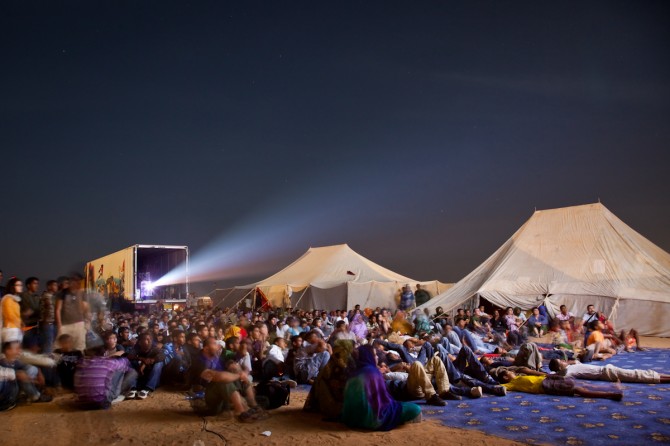
I vividly remember the moment when I stepped on African soil for the first time. Together with 300 yawning Spaniards, I got off the plane near the remote Algerian town of Tindouf, and eagerly looked around to examine the surroundings. It was shortly before dawn, the skies were turning pale pink and the air was still chilly and crisp.
After a quick and somewhat provisory border control, we transferred to a flock of rickety buses. Some of the signs read “Fuora di servizzio,” or “Servicio escolar,” others were ancient town buses living their second lives in Sahara. They were supposed to take us further 170 kilometers (105 miles) west. We were heading towards the Western Saharan border and a dusty, solitary refugee camp of Dakhla. Every year, it hosts the FiSahara, the world’s most remote film festival.
Four Decades Of Exile
Almost 40 years ago, a few temporary settlements were established for the civilians fleeing Western Sahara, the last African colony, governed by Spain. In 1975, its troops left the region incognito, more concerned about the political transformations back in their homeland than the future of the coastal desert south of Morocco.
In the pre-colonial era, the lands of today’s Western Sahara belonged to nomadic Berbers. They didn’t hold too much respect towards national belonging, so there was little certainty about the post-colonial identity of the region. After the retreat of the Spaniards, Moroccan soldiers entered the country in a so-called “Green March”, claiming their rights to the land. Sahrawis, the natives of the region, decided to fight against what they saw as an invasion. Those were the events that pushed thousands of refugees to flee to neighbouring Mauritania and Algeria, where they settled in provisory camps, hoping it was only temporary.
It had happened in 1976. Three decades later, they were still there.
Cannes Of The Desert
Peruvian film director, Javier Corcuera, decided to help Sahrawis the way he knew best: through cinema. He established an annual Sahara International Film Festival: FiSahara. Every year, the festival grows bigger and more popular, and instead of a statuette for the best film, the winner receives a snow-white camel.
Like all the participants of the festival, I moved into one of multiple haimas, large tents, to live with local families, who were to take care of feeding and keeping us safe over the festival time. Together with a Polish-Canadian photographer Maya and some Spanish folks, I stayed in a suburban haima, whose residents were both thrilled to have us and terrified that something unfortunate would happen and destroy our experience.
This overprotective approach was only magnified by the problems with communication. Many Sahrawis speak Spanish, as the territory of Western Sahara used to be a Spanish colony, and even now the Spanish government organizes holidays for Sahrawi kids so they can learn the language and experience life outside the desert. In our tent, though, Bushraya, the head of the household, only pretended he understood, and replied to everything by moaning ‘yo no sabo!’ Mohammed, a 9-year old who’d been to Spain one summer before, translated what we had to say into Hassaniya (the dialect of Arabic spoken by Sahrawis) only if he was in a good mood.
So, body language was what we had left. The women of the family sat us down and painted our hands and feet using brick-red henna. Soon we were wearing traditional robes on top of our t-shirts, and dancing to Sahrawi music coming out of an old cassette player.
In The Driest Place On Earth
To get to Dakhla’s center, we had to cross the entire village, finding our way through dozens of crooked adobe houses and white haimas. The only points of reference were three lonely palm trees, enough to bring to mind comforting thoughts of oases and lush greenery. Dakhla is located in the heart of hamada: a barren, rocky, extremely flat plateau that is considered one of the driest places on Earth, so every plant growing there looked like nothing short of a miracle.
The austere surroundings stood in contradiction to the excited atmosphere around. The town was teeming with life. Films were shown on a large screen attached to the side of a truck, underneath the stars. In front of it, spectators of all ages tried to get comfortable on blankets spread on the ground. To relax after days full of excitement, both visitors and locals flocked to two bars near the main square. Tucked behind the school, there was even a pizzeria.
Maya and I were invited to take part in the photography workshops organized for local children. Early morning on the second day, before the heat became unbearable, we took a group of Sahrawi girls and compact cameras, and set off to explore the camp together. We became friends almost instantly. So much, in fact, that for my birthday some days later we had a little party. I was even made to perform some Polish songs, but strangely, I didn’t mind at all.
A Perfect Desert Life
And so the days went. I would wake up to the sight of camels belonging to the neighbours. Photography workshops took a few hours, and after escaping the scorching heat of the early afternoon, Maya and I would be back in the village, watching films and making friends with both newcomers and Sahrawis. Then, on the final day of the festival, camel races were scheduled. I couldn’t wait. With an immense turmoil, trills and deafening yells of ‘yalla!’(come on!), a dozen adorned beasts sped through the village, leaving the amazed spectators in clouds of brown dust. Later that same day, a winner of the festival won his own white camel. Even if it was quite difficult to take back to Spain, I wondered, would there be any better film award in the world?
After a thrilling week, it was time to go back. Old buses were waiting to take us for a five- hour long journey across the desert, back to Tindouf. Among the visitors and volunteers, we often wondered if these exciting few days would help Sahrawis anyhow. We went back home, they stayed in the heat of Dakhla with no happy prospects; however, maybe this is what we could do?
I was sitting on the plane, flying across Algeria, munching dates that cabin crew handed out, and promised myself I would try to do my part, share the stories, support the aid programmes, and never forget the wonderful people I met over my time at Fisahara. I kept my word.
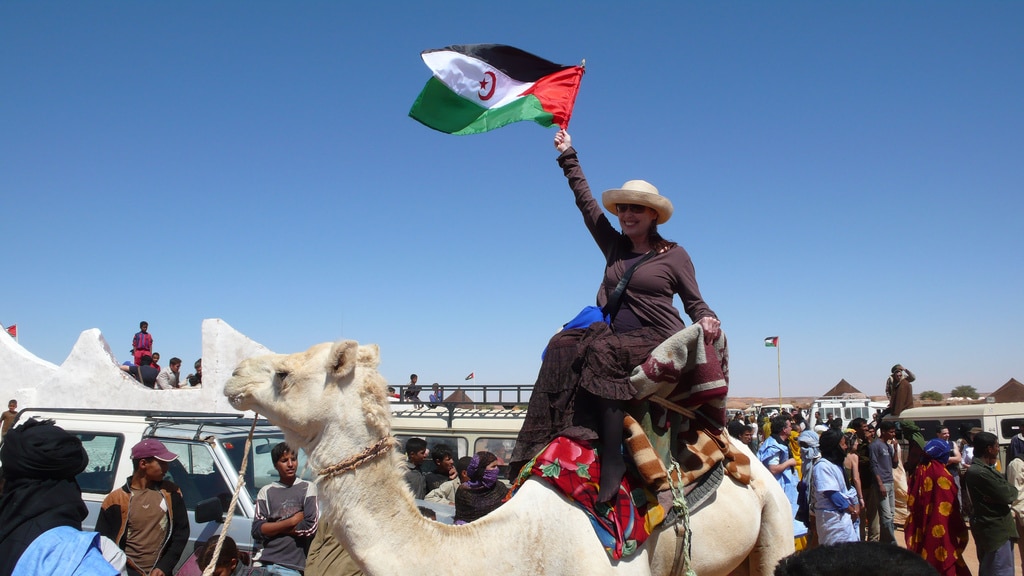
The 12th edition of FiSahara will be April 28 to May 3 2015.

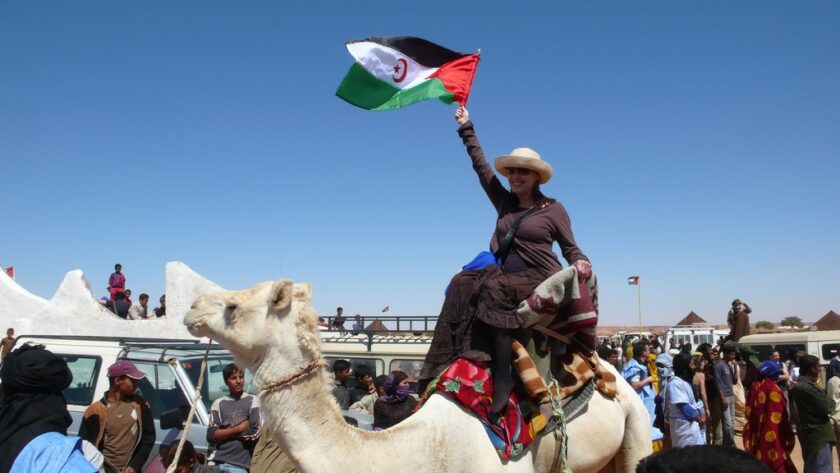
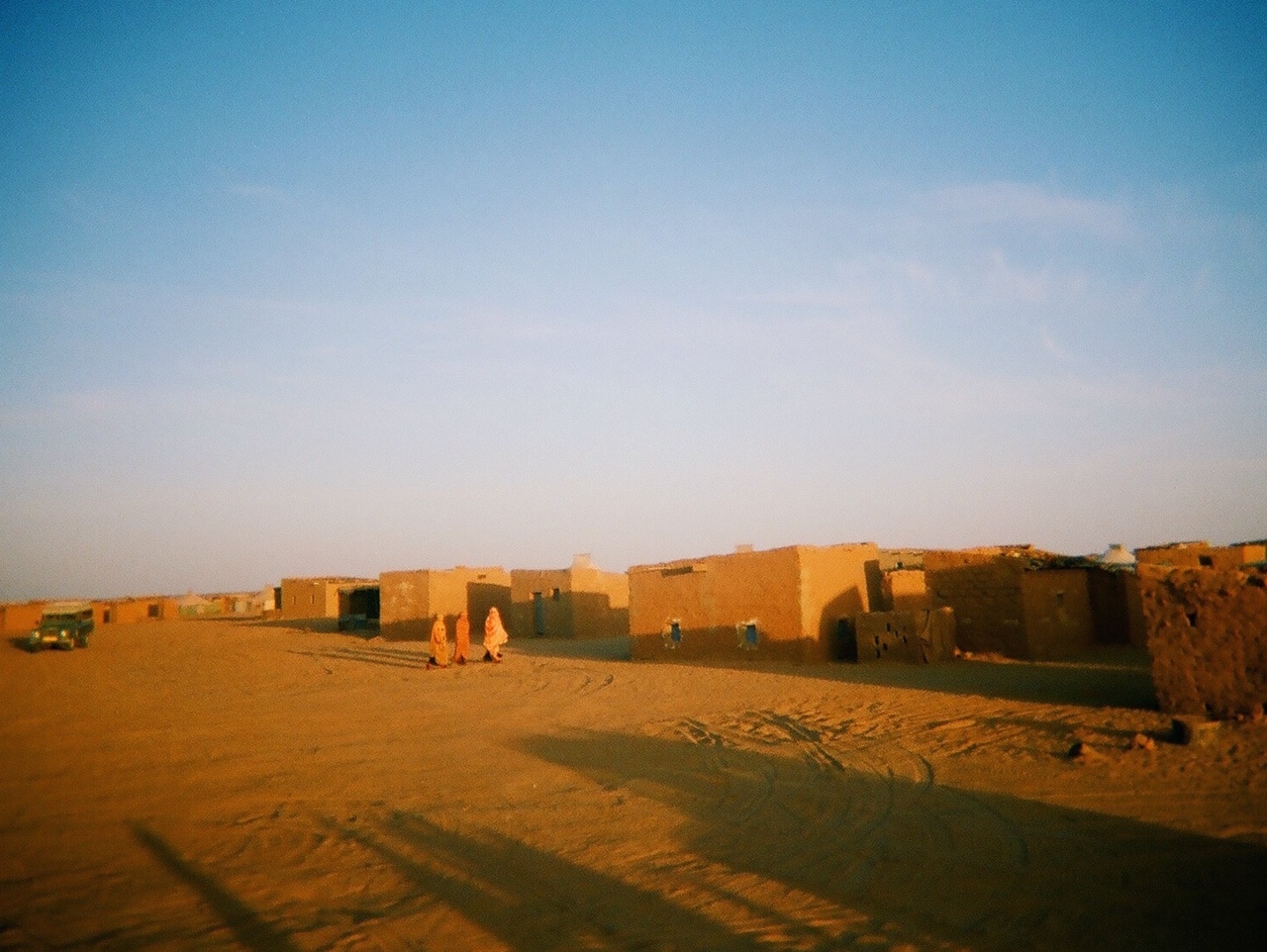
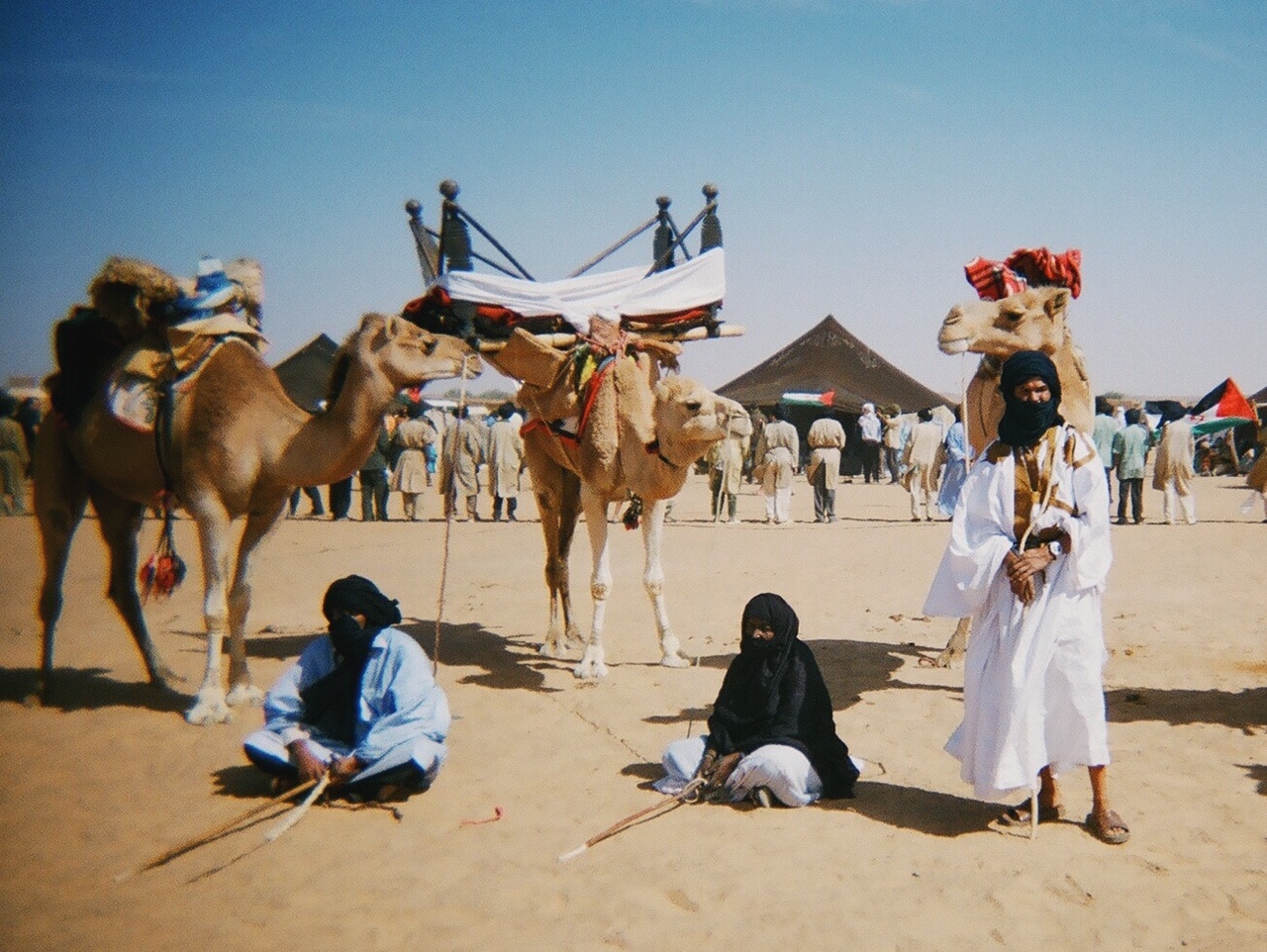
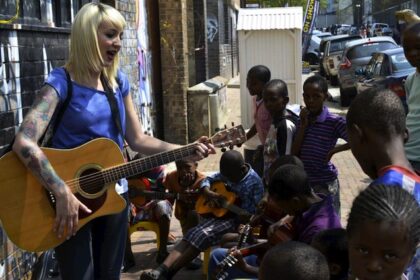
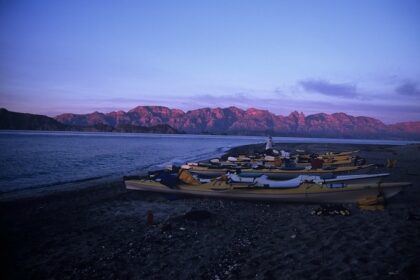

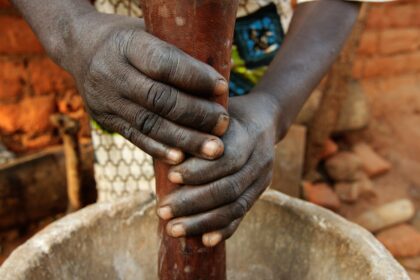
Just wanted to say how much I enjoyed this post. Agnieszka, if you’re reading would be great to know what you’re involved in with the Sahrawi people at the moment. I travelled to Italy in my early 20s to look after severely disabled Sahrawi children who had come to the country for free treatment. I always wondered if the experience of seeing Italy and all the comparative wealth just made the destitution of the children’s lives more acute.
Dear Jo,
Thanks so much for your comment! Currently I’m not involved with any organisation helping Sahrawis, however, while living in London, I cooperated with Sandblast (http://www.sandblast-arts.org/), an NGO doing some amazing work. There’s also Spanish initiative called Bubisher worth checking out (http://www.bubisher.org/). Your experience of work with the children in Italy is so impressive! However, a clash between the European level of life and the problems of Sahrawi kids must have been striking. It was quite similar for me, coming to the camps directly from Madrid – a cruel reality check.